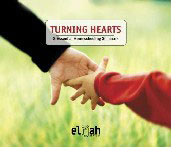
E-journal January 19, 2010 |
Hoard and Clutter Syndrome View past ejournals HERE>> Sign up for our newsletter below. Like many of us who want to turn over a new leaf for the new year, I’ve spent the past few weeks trying to get a grip on my out-of-control living space by going through closets, storage areas, and papers. I’m trying to restore order to the chaos of clutter that has accumulated in our house, on our porch, and in every imaginable nook and cranny where things could be stuffed. I swear that clutter breeds in secret when I'm not looking and pretty soon it is like those Tribbles in the old Startrek episode—it fills every available space. But, unlike Tribbles, clutter isn’t cute and cuddly. The other night I was sitting in front of the TV going through boxes of old papers and a program came on about hoarders. “Oh my gosh!” I said to myself, “This is me.” But, thank God, it wasn’t really “me.” The program showed the lives of people whose homes had become little more than narrow pathways from room to room through mountains of “stuff.” In one woman's home, the only open spaces other than the pathways through the clutter were her toilet and just enough room on her bed for her to sleep. Every other surface in the whole house was completely covered with mountains of junk that would periodically topple on her when she brushed past it. It turns out that this is a disorder that affects 1 in 40 Americans. It’s called Hoard and Clutter Syndrome. You can watch this video about it if you want. My Hoarding Background My father was a hoarder and a tinkerer. My Mom, my sisters and I called him a "junkaholic" because he was always finding odds and ends of things and stashing them somewhere in the basement. On trash day, he would patrol the streets of our neighborhood looking for things he thought might possibly come in handy someday. I realized my father had grown up during the Great Depression, so always attributed his packrat tendancies to those years of deprivation. In the Depression, you had to make do, had to hoard, had to keep everything—because you never knew whether or not you would need it someday. The Depression also taught him to squirrel money away because you couldn’t trust your money would be safe in the bank. My father had dozens of hiding places. In addition to the usual cash-stashing favorites such as the very back of his closet and under his mattress, he had belts with secret zipper compartments and hollow canes with removable bottoms to hold rolled-up bills. We forgot about Papa’s cash-stashing ways when he died and gave a closet-full of his clothes away to one of the workers on his farm. The worker came back later grinning from ear to ear and thanked us profusely for the clothes. That’s when we realized we had probably given him some of Papa’s belts with secret pockets full of cash. I thought I had escaped inheriting my father’s packrat ways until I tried to raise three small children and also run a business in a 3 bedroom, 1 bath home. Then not only did I have to deal with all the clutter that a family of five with three children generates as well as all of the clutter that a home office generates, but each month publishers sent me dozens and dozens of books and teaching materials to review. Even with bookcases lining every hallway and huge storage cabinets wherever I could squeeze them in, there was never enough room for it all, so hallways became narrow passages through the “stuff” and eventually totes full of books crept into the other areas of the house. I never had the time or energy to go through it all, and there was never any way to catch up, because for every book I finished reviewing, ten more arrived in its place. We learned to just “make do” living in a highly cluttered environment. Now the boys are no longer children and the business is closed, but somehow a lot of the boys’ stuff wound up staying in the garage along with the leftover office furniture and supplies. Then we moved to a smaller house, so there was no place for the extra “stuff” to go but the garage and a storage shed, which gradually morphed into several storage sheds. (I think storage sheds breed when you’re not watching too, just like clutter and Tribbles.) I read somewhere that the average family has nearly $2500 worth of saleable "stuff" they never use sitting in their closets and garage. Our family is way above average, but, somehow, I can never get around to making that pile of money from my “stuff.” When I threaten to go through the garage and storage shed and throw out all the boys’ childhood toys unless they do something with them, they always say, “Mom, you could make a lot of money selling those old G.I. Joes and Legos on eBay or that antique toy chest on Craigs List or that old bunk bed on the Local Sales Network.” So I keep it all, fully intending to sell it for enough money to go on a cruise someday, but somehow never getting around to taking the photos and writing the descriptions I need to post all these “treasures” for sale. But I console myself that I’m sitting on what could one day make me a small fortune (except, possibly for the Beanie Baby collection). And I tell myself that someday my grandchildren might want to play with all those toys. Why We Hoard and Clutter As I tackled my annual attempt at creating order out of chaos in my home this week, I began thinking about what it is that causes me to accumulate stuff. What is motivating all those people with Hoarding and Clutter Syndrome? What is motivating me to tolerate the clutter I do, even though I’m not sure I officially qualify as a hoarder? I decided to do some research on hoarders and clutterers. According to the Mayo clinic and other researchers, people hoard for the following reasons:
Also, here are some risk factors and features about hoarding that researchers have come to understand:
But, upon further research, I found the perfect excuse for my messy house. It turns out I'm a victim of faulty brain chemistry. Here's proof: “For people with compulsive hoarding, decisions to discard personal possessions activated brain regions associated with processing punishing or unpleasant events. Refusals to discard personal possessions activated regions associated with categorizing, as well as intense emotional processing. These results may provide insight into why people who hoard have such great difficulty discarding items: Decisions to discard may be experienced as punishing, and thus be avoided in the future. Unsuccessful decisions to discard may result from the inability to properly classify the item and thus be able to take action.” So it isn’t really that I’m messy, disorganized, a pushover when it comes to my children not wanting to take their stuff off my hands, lonely, or fearful that if I get rid of something I will need it next week. It’s that my father’s hoarding brain chemistry was so associated with a punishing, unpleasant event (the Great Depression) that he passed on that same brain chemistry to me. Now that would be an easy out—“I’m sorry that the house is such a mess, dear. But it’s because I inherited hoarding brain chemistry.” Too bad I didn't try that one out on my husband. My Take on Things So, for me, clutter hasn't particularly been a hoarding problem, it was mostly a time and energy problem. After an exhausting day, when faced with the choice of whether to go through the pile of papers in the box in the corner of my room or snuggle in bed reading a little one a book, the book would win hands-down, every time. Ellyn Helpful resources for the clutter-overwhelmed: Getting Things Done by David Allen Simply Organized by Emilie Barnes The Messies' Manual by Sandra Felton This Year I Will... by M. J. Ryan |
Our friend Susan is a home schooling Mom and she is very concerned about her children's health. Her son, Liam is allergic to almost every chemical known to man, so Susan has to be very, very careful what she allows him to play with. When he gets together with other children and they play with Play Doh, Liam can't play. The dyes and chemicals in the dough can not only make him very sick, they might kill him. Home School and Home Business With over 4,000 copies sold in just a few months, I Saw the Angel in the Marble is becoming a home schooling best seller! This book represents the best of 15 years of Elijah Company articles. Find our more HERE>>
If you missed one of our From Home School to Home Business Conferences, you missed a great time.People who attended told us that it changed their lives—not only in the area of home schooling, but also in the area of creating their own sources of home income.This set is huge and filled with useful and encouraging information about how to be successful at home schooling and at home business! Find out more about this life-changing set of CDs HERE>> Building the Business of Your Dreams (8 CD Set) We've had requests for just the business portion of the From Home School to Home Business Seminar, so have developed a set of the business CDs from that set. It contains 8 CDs and includes sessions on The Entrepreneurial Mind, Multiple Streams of Home Income, Discovering Your Ideal Life and Ideal Business (2 CDs) , Developing a Business Plan (2 CDs), and The Importance of Business Relationships. Plus, there is a very important and insightful interview on Redeeming the Marketplace. Find out about this life-changing set of CDs HERE>>
Left Brained Finance for Right Brained People is hands down the best book we've ever found about money and finances and how to manage both. It could be used as the core curriculum for a Money and Finance unit with junior highs and up or by parents to have an overall understanding of money and how it works so they can teach their children. GO HERE>> to order.
Be sure to sign up for our ejournal! Sign up below. Any article appearing on this website may be copied or forwarded electronically provided that proper credit is given and that the article is not substantively modified.
No article may appear in whole or in part in a publication sold for profit or as part of any commercial endeavor without the written consent of Home School Marketplace. Any reprint must include an acknowledgement of where it came from and the sentence "Sign up for the Home School Marketplace newsletter at www.homeschoolmarketplace.com." |





